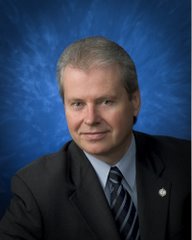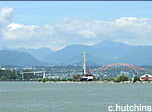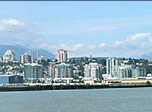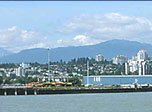Canada Election 44 Observation
In an election few wanted, Justin Trudeau managed to return the Liberal Party to the government benches in the House of Commons for the third consecutive time.
Election 44 was also the most expensive in Canadian history, costing $612 million. Given that only 16 million Canadians voted, that's about $38.25 per vote just for the Elections Canada portion. Then there are the additional millions spent by the Parties and Candidates.
The Liberals failed to obtain a majority of House of Commons seats, forcing Liberals once again to reach across the aisle to Opposition Parties to govern. The costly exasperating exercise raises questions about Trudeau's credibility and competence to govern, especially when the Covid-19 crisis remains far from over.
The Liberal Party was gunning for a majority when the polls at first were favourable. His competitors reminded voters that it was just a wasteful power grab. No significant governance was blocked, and there was no Parliamentary defeat on a vote of "confidence", which triggers an election.
Elections Canada lists 24 accredited Parties that participated in the election, such as the Rhinoceros Party, Maverick Party, Animal Protection Party, Marijuana Party, and the Communist Party. However, of concern to the viability of Canadian democracy was the size of the historical Conservative vote, which was siphoned away by the one-man ego Party of Max Bernier (People's Party of Canada). They did not elect any of their own, but caused seats to be lost to favour the Liberals. According to an analysis by CBC News Labs, vote splitting between the Tories and the PPC may have cost the Conservatives up to 24 ridings across the country. Additionally, the Maverick Party also added to the Conservative split. The narcissistic fringe changed the political outcome, and not in a good way.
Wednesday, with mail-in ballots still being counted, Trudeau's Liberal Party remained 11 seats short of the 170 target to form a majority government, bringing back a Parliament strikingly similar to the last one.
Party Seats Votes
Liberal 159 47.0 % 5,542,3603 32.6 %
Conservative 119 35.2 % 5,730,515 33.7 %
Bloc Québécois 33 9.8 % 1,301,758 7.7 %
NDP 25 7.4 % 3,022,4511 7.8 %
Green Party 2 0.6 % 394,740 2.3 %
People's Party - PPC 0 0.0 % 842,969 5.0 %
In the last election, well before Covid-19 became the preoccupation of voters, the Liberals were punished for a series of scandals that had made campaign promises of ethical government almost laughable. Political divisions made this election one of the most toxic in recent memory. Aside from the pandemic spending, the other main issues on the campaign trail were climate, housing affordability and gun control. Foreign affairs issues rarely intrude into a Canadian election campaign, but the first few days on the hustings were dominated by biting questions about Canada's response to the United States' abrupt pullout from Afghanistan. Left behind, in part by bureaucratic bungling, were thousands of Afghans whom Trudeau had promised to accept as refugees.
Could this election spell the beginning of the end of the once-powerful Trudeau brand, and open the door to a leadership challenge down the road? With his previous ethics violations providing ample ammunition to opponents, Trudeau may need to make way for a fresh face to lead his Party into uncertain times. Mark Carney, Chrystia Freeland, François-Philippe Champagne, Anita Anand, Marc Garneau, Dominic LeBlanc have been feted as Trudeau replacements.
The next election will need to be held by 2025, unless the Liberal government is defeated in a non-confidence motion. It seems likely that by then, voters will have tired of Trudeau and seek a change. If the Liberals call another untimely election without Parliamentary defeat on a “confidence motion”, it could devastate the Party, perhaps like what happened to the Progressive Conservative Party in 1993, when it went from a majority to holding only two seats.
As the House of Commons
reconvenes this fall, Trudeau's Parliamentary Caucus will be tempted to ask why
the election was called, given that it hardly changed the political
landscape in Ottawa.
Sourced from varied web news services










2 comments:
The narcissistic arrogance of the fringe is exasperating. Mavericks said they would not run where they would cause a problem for Conservatives, but that is exactly what they did…. liars. Bernier is a goofy guy, but the biased media boost him just to hurt Conservatives.
I dont understand the voters in the 905 area code, why they support the Liberals, when they are so bad, and have such an awful leader.
Post a Comment